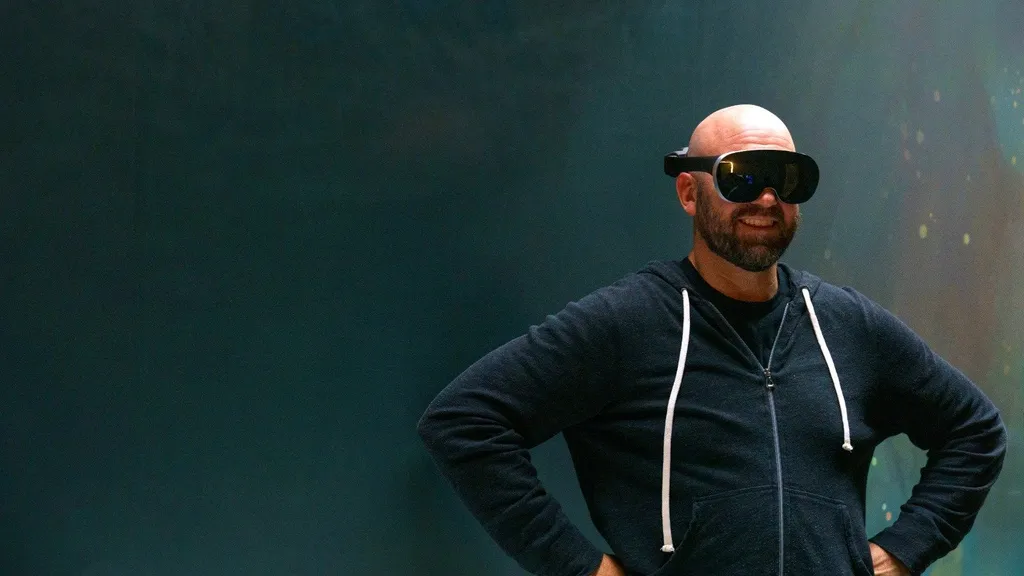Since acquiring Oculus in 2014 Mark Zuckerberg’s company erased nearly every reason not to buy a VR headset, with one big exception.
That reason, of course, is Facebook.
“Oculus Quest 2 Review: The New King Of VR, If You Don’t Mind Facebook,” Jamie Feltham’s review of the headset noted at its release just over a year ago.
“Facebook’s New Portal Is Great, but It’s Also Facebook,” Gizmodo noted about the company’s latest Portal Go video calling device this week.
Zuckerberg has the majority controlling stake of a public company built on the idea people would voluntarily fill out an online profile, take photos with their friends and tag them in those captures of the past. But the company which built that technology is fundamentally different now, with some 60,000 employees at last count. The 2021 version of this company is starting to make useful hardware products, like the Quest 2 that every single Facebook employee can get for free. Likewise, the company Zuckerberg is in charge of today is different still from the one he wants to build to be a major player in the next steps for computing.
For Zuckerberg and incoming CTO Andrew Bosworth, it may be time to change up the rules of the game.
Facebook Going Meta

From Magic Leap to Meta, plenty of projects ran out of money before realizing a particular vision of a world in which layers of information exist on top of physical reality.
While pieces of many early AR efforts continue, lots of creators already moved on from the earliest AR companies. These people — hundreds and hundreds of them — still have visions of something like a so-called “Metaverse” that can augment or “enhance” people throughout their day.
Some of those creators are now in Zuckerberg’s employ, but more still are at Apple, Microsoft, or Google, or blazing trails at smaller companies or even on their own. It is no small task trying to piece together exactly how a world functions in which some people are augmented with the abilities of a wizard or superhero, and others are not.
To understand how different the world might be in 5 or 10 years’ time, ask yourself questions like these:
- Do you want any person at any time to be able to pull up your Facebook profile just because they saw your face?
- Would always-on face-recognition technology change how you behave in public?
- Does the ability to record your perspective include the right to permanently save, analyze and share the location, actions, conversations, and appearance of the people you see?
Community Governance
“Facebook is planning to change its company name next week to reflect its focus on building the metaverse,” The Verge reported, “to signal the tech giant’s ambition to be known for more than social media and all the ills that entail.”
Is Meta the future umbrella name for Zuckerberg’s whole operation?
At writing, the URL Meta.com redirects to Meta.org, which is listed as a project from an initiative co-founded by Priscilla Chan and her husband, Mark Zuckerberg. The Chan Zuckerberg Initiative is meant to “help solve some of society’s toughest challenges—from eradicating disease and improving education, to addressing the needs of our local communities. Our mission is to build a more inclusive, just, and healthy future for everyone,” the site says.
Given the weight of the answers to the questions I asked above it is hard to imagine the right answers emerging from Zuckerberg alone, or from his directors, or indeed from anything less than the informed consent of those affected by the technology’s use. While many have compared the report that Zuckerberg is preparing to rebrand the company toward its “Metaverse” aims as being similar to Google moving under the larger umbrella of the Alphabet moniker, I’m not sure the same exact things are happening here.
How do Messenger or WhatsApp exist in a world where four people feel like they are standing together for a conversation but each of them is in a different physical location? Do my Instagram photos adorn my artificially-enhanced walls as I share the couch with a faraway friend and we watch Disney+ together? What happens to the classic Facebook newsfeed?
Could the names Horizon, Connect, and Oculus be possible follow-ups as well? Oculus in particular has the benefit of being the brand teens have been asking their parents for in ever-growing numbers on the path from Oculus Rift in 2016 to Oculus Quest 2 in 2021.
Whatever the name, I’ll be most curious to see if Zuckerberg says anything significant about the governance of this future organization. Perhaps of note, Facebook’s first efforts in blockchain technology haven’t gone far just yet, but might smart implementation of a shared transaction ledger play a role in Zuckerberg’s future ambitions?
Facebook Connect Oct. 28
In 2018 Zuckerberg himself announced the name “Oculus Quest” at a price of $399, and in 2020 his team achieved a “pure win” in Quest 2 that is “better, faster, cheaper, and we’re making a ton more of them,” John Carmack said.
In 2021, the $299 entry-level Quest 2 got an upgrade up to 128GB of storage. You can use it without a controller, it can do multitasking like a rudimentary PC, and it’s starting to get full-scale games like Resident Evil 4. Quest 2 even optionally connects to your phone or PC wirelessly for features like casting your view or, if your computer can handle it, even playing PC VR games like Half-Life: Alyx.
“We’ve got plenty of reasons to buy Quest 2 I think for some people they’ll need the excuse,” Bosworth said earlier this year. “They’ll need to have a justification they use that introduces that technology to them. And that is really critical to breaking fully mainstream to your point where you’re getting out to nine and 10 figures of people in the headsets.”
We’ll undoubtedly see Zuckerberg’s plans for giving people that excuse during the Facebook Connect keynote on Oct. 28.





























